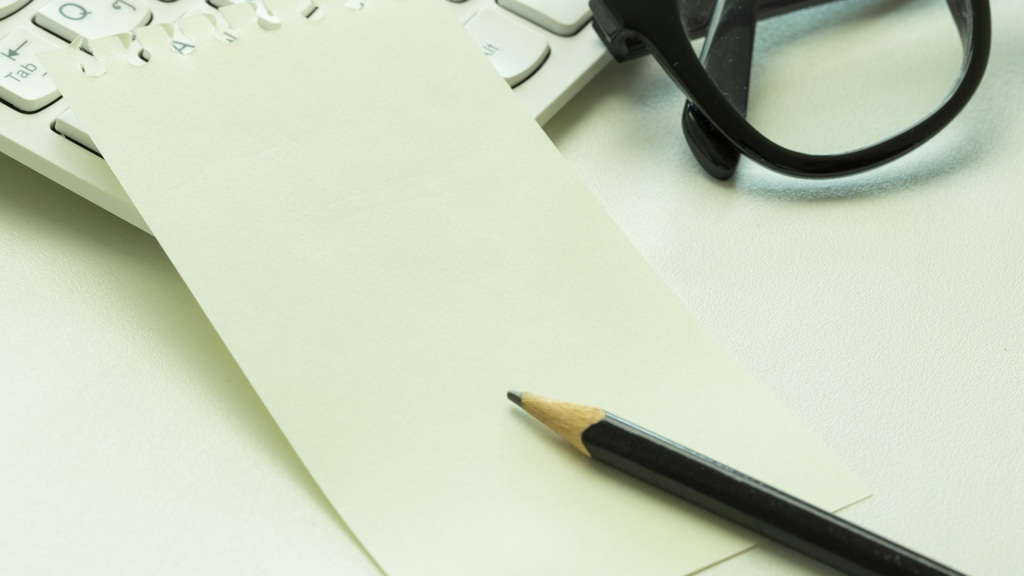When the pen beats the laptop
Datum: 2017-04-03 15:35

What is best — making meeting notes using pen and paper or writing them digitally on a laptop or a tablet? As in so many other situations, it depends.
Sometimes it is important for us to remain focused on the conversation without getting distracted by other things, which would suggest pen and paper is preferable since they do not have any ”ping!”s or other notification sounds distracting you. Sometimes we prefer making notes using our laptop since we want to quickly and with ease get all the information we need down in writing and effortlessly save it in the appropriate (digital) location after the meeting.
Remembering what was said
When we are being given new information that we wish to remember, pen and paper are the better option. This is the conclusion of an article about a study performed by the researchers Pam A Mueller and Daniel M Oppenheimer at Princeton University and UCLA.
In three separate experiments they compared laptops with using pen and paper as the tool for taking notes during meetings. Three groups of test subjects got to listen to a handful of short lectured and then answered a number of questions regarding the information and facts provided in the lectures. According to the researchers, this was the first study of its kind ever conducted.
Initially they arrived at the conclusions that:
- The person who is writing by hand will be more brief (use fewer words) than the person using a laptop.
- The person who makes notes on the laptop ”copies” more of the information given word for word to a greater extent than those writing by hand.
Slow becomes short
The consequences of using the two methods were that those making notes by hand generally got a better score when later asked questions about the content of the lectures, which the researchers interpreted as a sign of that:
- The person who writes less since they are writing by hand are forced to reinterpret what he or she hears (and sees), and write it in their own words. This processing of information makes it easier to remember what we learned.
- The person who ”copies” what is said since they are writing on a digital device miss out on some of this processing, which makes it more difficult to remember and retain the information.
More information did not result in more knowledge
Something that seemingly would argue in favor of making more literal and word-by-word notes on the laptop is that more information is written down, which means that there is more information to access at a later date and repeat as a part of learning and remembering. But, the fact is that even in the group of test subjects that were asked to answer the questions regarding the lectures one week after the initial test (and hence had the opportunity to revise and repeat their notes), the people who made notes by hand still remembered more and got a higher score — in spite of actually having less notes to revise.
So, according to Muellers and Oppenheimers study, paper and pen is the superior tool to make notes with when you wish to remember as much as possible from a meeting, a lecture or a conversation.
Do this
- If you want to take advantage of these research results, take a moment or two to think about in what meetings, situations or contexts it is important for you to remember what has been said.
- If you are not already doing so, decide to make notes by hand in these meetings from now on.
- Put an empty pad and a pen in your bag so that it is always available when you are having meetings outside of your office. Or, pick a place in your office where you place the empty pad you wish to make notes on during these kinds of meetings with colleagues.
- If you wish to remind yourself to from now on make notes in the pad during these meetings, locate one or several of them in your calendar and add a note saying ”Bring pen and paper!”. When you are getting ready for the meeting or get a reminder regarding it, you will also be reminded how you want to take notes.
- You now also need to determine what you will do with the notes you made during the meeting after it is done, if you have not done so already. This is a suitable topic for another tip on structure, but let me just briefly recommend you to process these notes just like you process all other papers or emails. Do not leave them in the notepad without first sifting out the to-do-tasks you said you would do during the meeting, as well as any other information you need for future reference somewhere else.
Remember more
If you take notes by hand in all the situations when it is important that you retain and remember what has been said, you will (according to the study) find it easier to remember the essentials from your meetings — without making any extra efforts. You rephrase what you hear and write it in your own words, and hence make this new information ”your own” to a greater extent.
What is your method?
In what meetings or other situations would it suit you best to make notes by hand instead of using your digital device? Write a comment to share.




